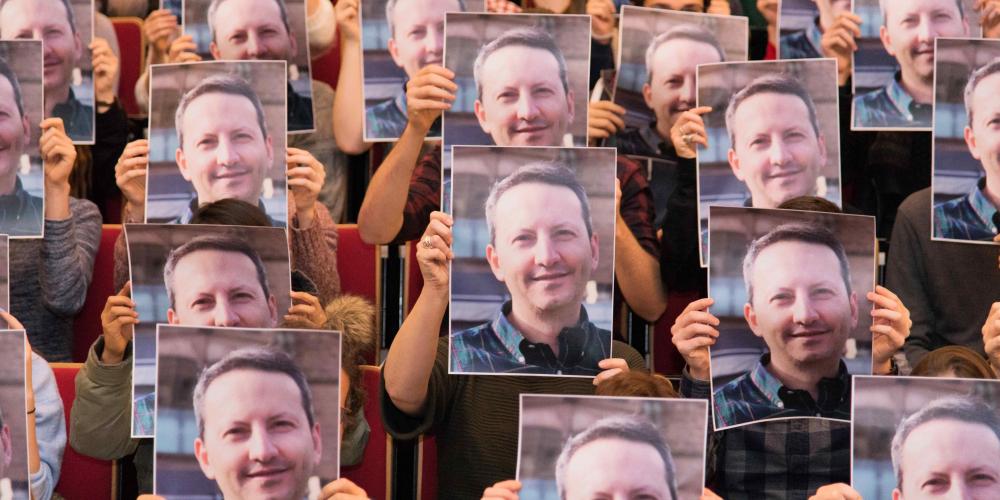
The rectors of Flanders’ five universities have highlighted the desperate plight of Ahmadreza Djalali – and others – in prisons in Iran, via a statement in the magazine Knack. ‘It’s important to keep drawing attention to it.’
Last week, Vida Mehrannia came to Belgium. Over five busy days, she went from interview to interview. She met politicians, shared her story with journalists, attended solidarity actions and spoke to rectors.
She is now back in the Swedish capital, Stockholm, where she lives and works. Her visit to Belgium is over, but her cause remains essential: the case of her 51-year-old husband, Ahmadreza Djalali. A respected doctor who specialises in emergency medicine, a researcher at Sweden’s Karolinska Institute, a visiting professor at VUB and other universities.
During a visit to Iran in April 2016, to give a series of lectures at the invitation of the universities of Tehran and Shiraz, Djalali was arrested. Accused of spying, he was sentenced to death following a sham trial in 2017. His execution date has been announced several times, only to be postponed until further notice.
For seven years, Ahmadreza Djalali has been languishing in an Iranian prison, mostly in solitary confinement.
For seven years, his wife, children, family, friends and colleagues have been living with the hope that one day, there will finally be good news from Iran.
For seven years, they have lived with the fear that one day, they will receive the news that their husband, father, relative, friend and colleague is gone forever.
It is hard to understand just what this uncertainty and injustice has done to Ahmadreza Djalali, Vida Mehrannia, their children and loved ones. What is certain is that it is inhumane and unacceptable. Equally, it is almost superhuman that Vida Mehrannia still has the strength, after seven desperate years, to continue knocking on doors, continue telling her story, and continue to hope.
Facing such injustice and arbitrariness, but also such courage and fighting spirit, inspires humility and invites action.
It is important that Vida Mehrannia has the time and the opportunity to spread her message – in TV studios and offices, in public squares and in parliament.
It is important that we – politicians, journalists, rectors, civil society, concerned citizens – continue to repeat this story again and again, reinforcing her message.
With public actions and targeted initiatives that are within our reach, such as the suspension of all new forms of academic cooperation with Iranian institutions for as long as Ahmadreza Djalali’s fundamental human rights are not respected.
It is important that we do this with one clear voice. With the courage and persistence that Vida Mehrannia has shown for the past seven years. For her, and for Ahmadreza Djalali.
This applies too to the family and friends of Olivier Vandecasteele, whose situation we are keeping a close eye on.
And we are concerned not only with the people whose names and faces we know, but also those countless other victims of state terror and arbitrariness. The fight for human rights in Iran continues to be carried out by courageous women and men, students and citizens, who know all too well that they are paying a heavy price in human lives, with cruel reprisals for themselves and their families
Defending the values and principles we stand for, promoting and defending respect for universal human rights, taking action when those rights are violated: it not only underpins the fight for the release of Ahmadreza Djalali, it also strengthens the struggle of those countless victims to whom we cannot always give a name and a face, but who are also someone’s partner, parent, child, relative, friend or colleague.
Rik Van de Walle (UGent)
Jan Danckaert (VUB)
Luc Sels (KU Leuven)
Herman Van Goethem (UAntwerpen)
Bernard Vanheusden (UHasselt)